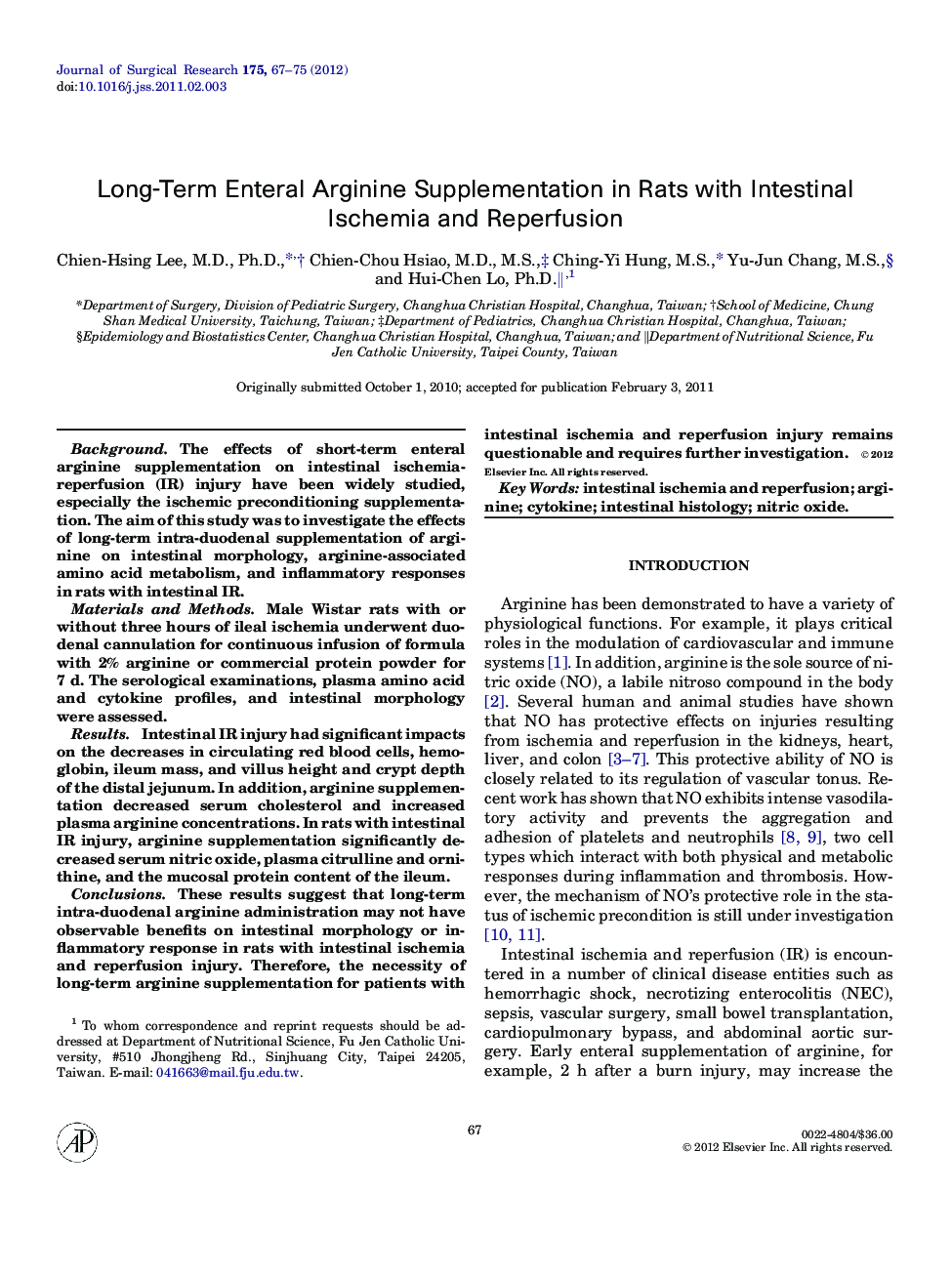| Article ID | Journal | Published Year | Pages | File Type |
|---|---|---|---|---|
| 4301326 | Journal of Surgical Research | 2012 | 9 Pages |
BackgroundThe effects of short-term enteral arginine supplementation on intestinal ischemia-reperfusion (IR) injury have been widely studied, especially the ischemic preconditioning supplementation. The aim of this study was to investigate the effects of long-term intra-duodenal supplementation of arginine on intestinal morphology, arginine-associated amino acid metabolism, and inflammatory responses in rats with intestinal IR.Materials and MethodsMale Wistar rats with or without three hours of ileal ischemia underwent duodenal cannulation for continuous infusion of formula with 2% arginine or commercial protein powder for 7 d. The serological examinations, plasma amino acid and cytokine profiles, and intestinal morphology were assessed.ResultsIntestinal IR injury had significant impacts on the decreases in circulating red blood cells, hemoglobin, ileum mass, and villus height and crypt depth of the distal jejunum. In addition, arginine supplementation decreased serum cholesterol and increased plasma arginine concentrations. In rats with intestinal IR injury, arginine supplementation significantly decreased serum nitric oxide, plasma citrulline and ornithine, and the mucosal protein content of the ileum.ConclusionsThese results suggest that long-term intra-duodenal arginine administration may not have observable benefits on intestinal morphology or inflammatory response in rats with intestinal ischemia and reperfusion injury. Therefore, the necessity of long-term arginine supplementation for patients with intestinal ischemia and reperfusion injury remains questionable and requires further investigation.
